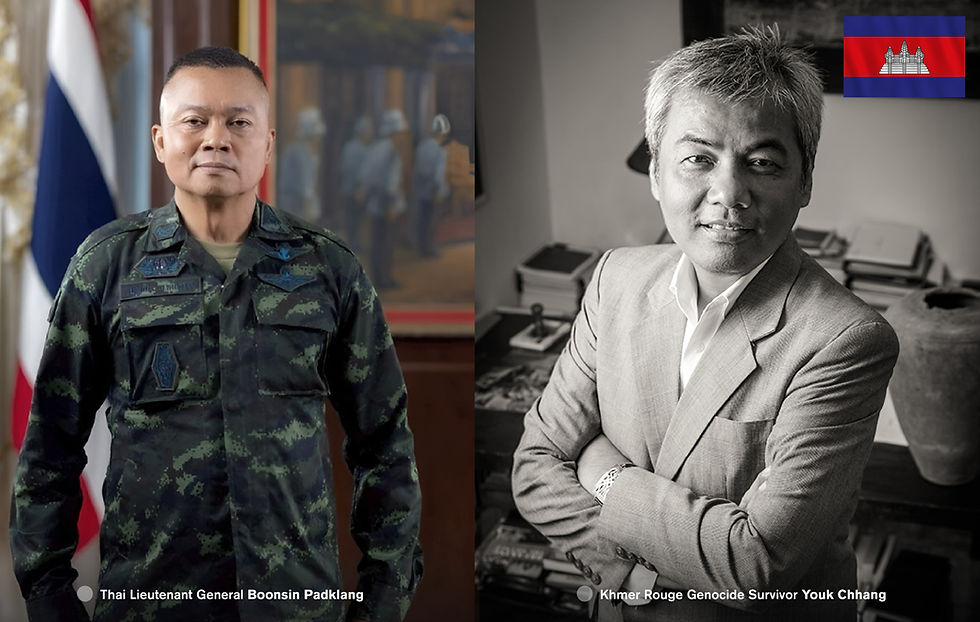Cambodia & Thailand: Youk Chhang, ‘The conflict will take on a new form because violence never disappears; it changes its face until it exhausts itself.’
- Youk Chhang

- Jul 30, 2025
- 2 min read
In Cambodia's turbulent history, few voices carry as much weight and gravity as that of Youk Chhang. Director of the Documentation Centre of Cambodia (DC-Cam) and survivor of the Khmer Rouge genocide, he has emerged as one of the most ardent defenders of justice, memory and national sovereignty.

At a time when regional tensions are resurfacing, particularly between Cambodia and Thailand, his lucid analysis of the changing nature of conflicts and the importance of international law resonates painfully in public debate.
‘The conflict will evolve and take on a new form. Violence never disappears: it only changes its face until it exhausts itself.’
With this reflection, Youk Chhang emphasises the cyclical and insidious nature of violence. Even when the international scene appears to be calming down, he warns against the temptation to believe that conflicts have disappeared completely.
For him, true peace is not limited to the absence of open combat; it also requires a constant commitment to fighting latent injustices and underlying tensions that are waiting to resurface, camouflaged or transformed.
The recent international scene in Southeast Asia illustrates this point acutely. While the Cambodian and Thai governments agreed to a ceasefire following peace talks in Malaysia, Youk Chhang is well aware of the root causes of the conflict.
In his view, this is not just a matter of border rivalries or isolated military incidents, but a symptom of a wider crisis:
‘There is no doubt that this tragic conflict has its roots in a disregard for international law and, at the very least, in a military preference which, if not a deliberate strategy, aims to undermine Cambodian sovereignty.’
With these words, Youk Chhang warns of the fragility of the current international order, in which geopolitical interests and command errors can quickly escalate. He emphasises the need for constant moral and political vigilance. Yesterday's conflicts, he explains, are transforming themselves in new guises while retaining their substance: injustice, violence, contempt for the law. The duty of the international community, and of every Cambodian citizen, is therefore to refuse to forget and to reject cynicism, to defend at all times the memory of the victims and the resilience of the people.
Youk Chhang embodies this vigilance. Through his tireless work to document the crimes of the past, he refuses to accept a watered-down version of history and advocates for peace based on justice, truth and respect for international law. In the face of adversity, he reminds us of the urgent need to give meaning to memory and to resist the temptation of resignation.
His voice therefore remains essential for Cambodia, for Southeast Asia, and for all those around the world who refuse to accept violence as inevitable and who are working for lasting peace.







Comments